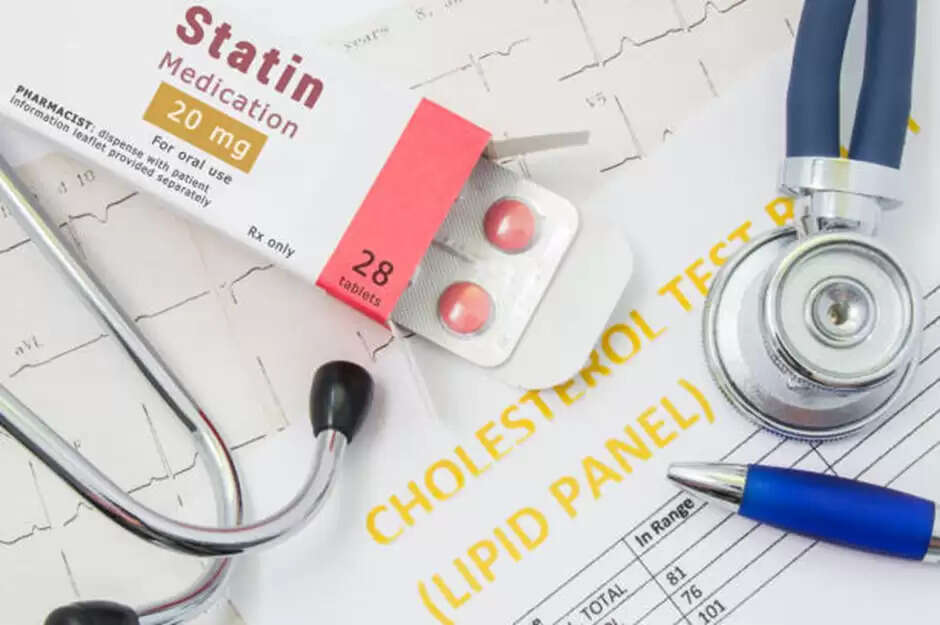Understanding Statins: What They Do and When They're Needed
With an ongoing sedentary lifestyle, high-fat diets, lack of exercise, and chronic stress all come together, making heart health a significant concern. High cholesterol is one of the most prevalent health problems that arise from this kind of life because this condition greatly increases the risk of heart disease and stroke. And that brings us to statins — perhaps the most common cholesterol-lowering meds. But what exactly are statins, how do they work — and when are they necessary?
Whether you're currently on a statin or your doctor just recommended one, knowing how these medications work and where they fall into your heart-health picture can give you peace of mind.
What are statins, and what do they do?
These types of meds work by inhibiting the enzyme, HMG-CoA reductase, that is primarily responsible for creating cholesterol in the liver.
Too much LDL cholesterol can cause fatty deposits to build up on your blood vessels, causing blood flow to the heart and other organs to be restricted, which, over time, we know can lead to heart attacks, strokes and other cardiovascular diseases. In addition to helping lower LDL, statins may also slightly increase high-density lipoprotein (HDL) or "good" cholesterol and lower triglycerides, another type of fat in your blood.
Atorvastatin is one such statin that is prescribed under various brand names. Atorva Tablet uses include treating high cholesterol and reducing the risk of heart-related complications in people with diabetes, high blood pressure, or a history of heart attacks. It tends to be suggested as one element of a wider life change which may be diet change, holding to an energetic routine and manipulation.
When Are Statins Needed?
Developed Cardiovascular Disease
Statins are commonly given to people to lower the risk of recurring cardiovascular events, for example, following a heart attack, stroke, or in those with a diagnosis of coronary artery disease. This is a form of secondary prevention.
High LDL Cholesterol Levels
When you have very high LDL cholesterol levels (typically ≥ 190 mg/dL), your doctor may recommend statin therapy in the absence of heart disease. This is particularly the case if other treatments or lifestyle changes don't manage to reduce the cholesterol level sufficiently.
Diabetes and Other Relevant Risk Factors
Patients aged between 40 and 75 years with diabetes and at least one other risk factor for heart disease, such as smoking, hypertension, or a family history of cardiovascular problems, are often placed on statins.
High Risk of Heart Disease
And if your 10-year risk of having a heart attack or stroke is 7.5% or higher (using calculator tools, such as the ASCVD Risk Calculator) even if you haven’t developed cardiovascular disease yet, statins may be recommended for prevention.
Types of Statins Available
There are multiple statins, but they differ only slightly in efficacy, dosing, and potential side effects. Here are a few of the most commonly prescribed ones:
- Atorvastatin
- Rosuvastatin
- Simvastatin
- Pravastatin
- Fluvastatin
Statins Benefits Other Than Lowering Cholesterol
Statins have several other benefits, beyond their ability to reduce cholesterol:
- Stabilisation of Plaque: They stabilise plaques in the arteries, making them less susceptible to rupture and a heart attack.
- Plays an Anti-inflammatory Role: Statins also improve cardiovascular function by decreasing vascular inflammation.
- Better Endothelial Function: Statins may also improve endothelial function (the inner lining of blood vessels), which enhances circulation.
- Lower chances of blood clots: Statins can lower the risk of stroke and other clot-forming-related problems by decreasing the chances of clot formation.
Possible Side Effects and Risks
Like any medication, statins can have side effects. The good news is, they are well tolerated by most patients. Common side effects include:
- Muscle pain or weakness: This is one of the most commonly reported problems but can often be alleviated through dose titration or switching to another statin.
- GI Issues: Some people may complain of nausea, bloating, or diarrhoea.
- Liver Enzyme Changes: Statins may cause an increase in liver enzymes, which is why periodic blood tests are advised.
- Higher Chances of Diabetes: Statins may, in rare cases, raise blood sugar levels, especially in individuals with a pre-existing risk of diabetes.
But if you have some worrisome thing while taking the statins, you should see a doctor quickly. In most cases, side effects can be easily managed or doses adjusted.
Statin and lifestyle: A combined approach
Statins are not a substitute for a healthy lifestyle. They are most optimally effective when added to positive lifestyle alterations, for instance:
- Consuming a diet that is high in fruits and vegetables, whole grains, and heart-healthy fats.
- Being physically active, which could also be 30 minutes each day.
- Steering clear of smoking and restricting alcohol consumption.
- Maintaining a healthy weight.
Following these habits helps in controlling cholesterol and also in improving overall heart health.
Are Statins Right for You?
Whether you should take statins depends on a more thorough assessment of your risk factors. This incorporates whether you have elevated cholesterol, regardless of whether you have family history, lifestyle management, (for example, absence of activity, exorbitant drinking, and so forth.) and other auxiliary conditions (diabetes, hypertension, and so on.). After factoring in the pros and cons, which is a discussion better had with your doctor of course.
For those who cannot tolerate statins, are contraindicated for this medication, or experience unacceptable side effects, alternative treatments can include PCSK9 inhibitors, bile acid sequestrants, or ezetimibe.
Final Thoughts
Statins are the contemporary cardiovascular medicine. For some, they represent a kind of last resort—an enabler to proactively stave off a life-threatening ailment before it strikes. But they are also not a silver bullet. So, here you can learn about them — how they work, who they help, and what you can expect so that you can make informed decisions about your heart health.
If you are prescribed statins such as atorzux 10 tablet, it is because the healthcare provider thinks that the benefits outweigh the risks for your particular medical condition. So make the most of your treatment with some regular follow-ups, good habits, and updated information.


